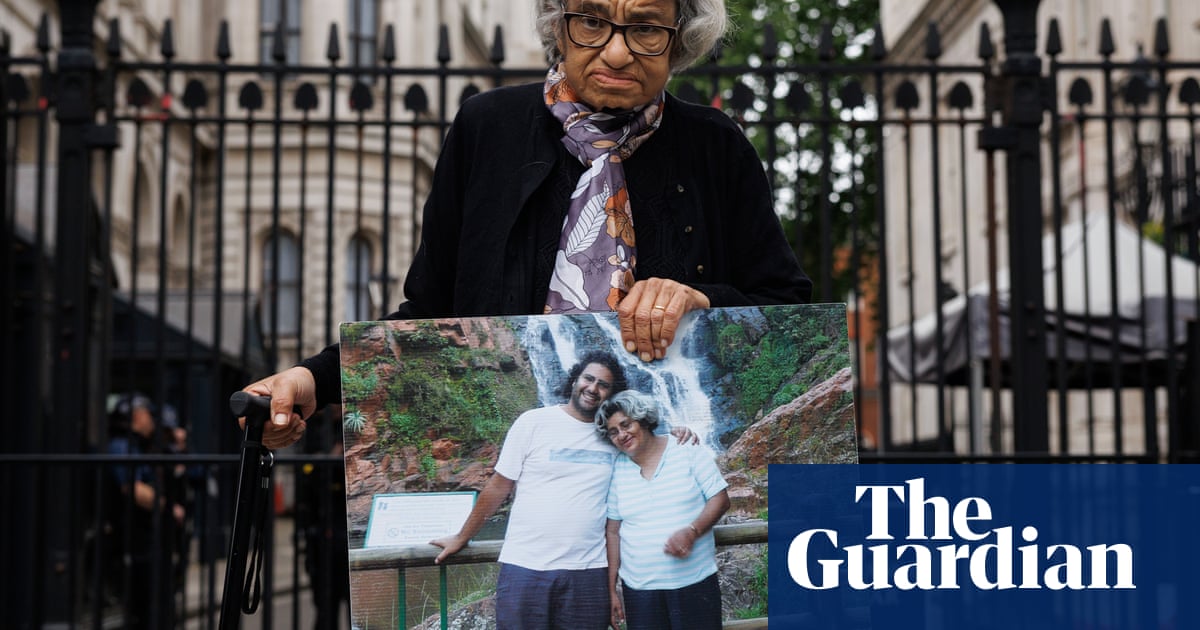The situation surrounding Laila Soueif's hunger strike highlights the broader themes of human rights, political activism, and the emotional toll of imprisonment on families. Soueif's efforts to secure her son Alaa Abd el-Fattah's release have drawn attention not only to his case but also to the ongoing issues of dissent and freedom of expression in Egypt.
Purpose Behind the Publication
The article aims to raise awareness about the extreme measures taken by Laila Soueif in her fight for her son's freedom. By detailing her hunger strike, the piece seeks to evoke empathy from readers and potentially galvanize public support for Alaa's release. This aligns with a broader goal of advocating for human rights and drawing attention to political prisoners.
Public Perception and Narrative
This report fosters a narrative of resilience and desperation, emphasizing the lengths to which families will go for their loved ones. It portrays Laila Soueif not just as a mother but as a symbol of resistance against oppressive regimes. By focusing on the family's history of activism, the article seeks to enhance their credibility and create a sense of urgency around Alaa's situation.
Possible Omissions or Biases
While the article highlights the struggles of the Soueif family, it may downplay the complexities of the political situation in Egypt or the potential ramifications of international diplomatic efforts. Readers may be left with a one-dimensional view of the conflict, possibly missing out on the broader context of Egypt's political landscape and the implications of foreign intervention.
Manipulative Elements
The emotional appeal of a mother's hunger strike can be seen as a means of manipulation, aiming to provoke outrage and support from the public. The use of personal anecdotes and familial connections to political figures may also serve to reinforce a narrative that positions the Soueif family as victims of an unjust system, potentially oversimplifying the situation.
Comparison with Other Reports
When compared to similar reports on political prisoners, this article focuses heavily on personal narratives rather than statistical data or broader political analysis. This could indicate a trend in media coverage that prioritizes human interest stories over comprehensive political reporting, which may affect public understanding of the issue.
Impact on Society and Politics
The coverage of Laila Soueif's hunger strike could lead to increased public pressure on governments to act on human rights issues in Egypt. It may also inspire solidarity movements among activists and organizations focused on political freedom, potentially influencing international relations and policies toward Egypt.
Community Support and Target Audience
The article is likely to resonate with human rights advocates, activists, and individuals concerned about freedom of expression. It aims to engage those who are sympathetic to causes of political prisoners and may mobilize communities who are already invested in social justice issues.
Economic and Market Influence
While the direct impact on stock markets or global economies may be limited, the implications of government responses to human rights issues could affect international business relations with Egypt. Companies that operate in or with Egypt may face reputational risks if associated with human rights abuses.
Geopolitical Relevance
This story situates itself within the larger dialogue on global human rights and the responsibilities of governments toward their citizens. It reflects contemporary issues regarding state power, dissent, and the international community's role in advocating for human rights.
Use of Artificial Intelligence
It is unlikely that AI played a significant role in crafting this article, as it contains nuanced human experiences and emotional depth that AI models may struggle to replicate authentically. If AI were involved, it might have influenced the structure or language but not the substantive content or emotive resonance.
The article presents a compelling narrative that reveals the human cost of political oppression while potentially glossing over complex political realities. Its reliability is bolstered by firsthand accounts but may be limited by its focus on emotional storytelling rather than a balanced exploration of the broader context.
